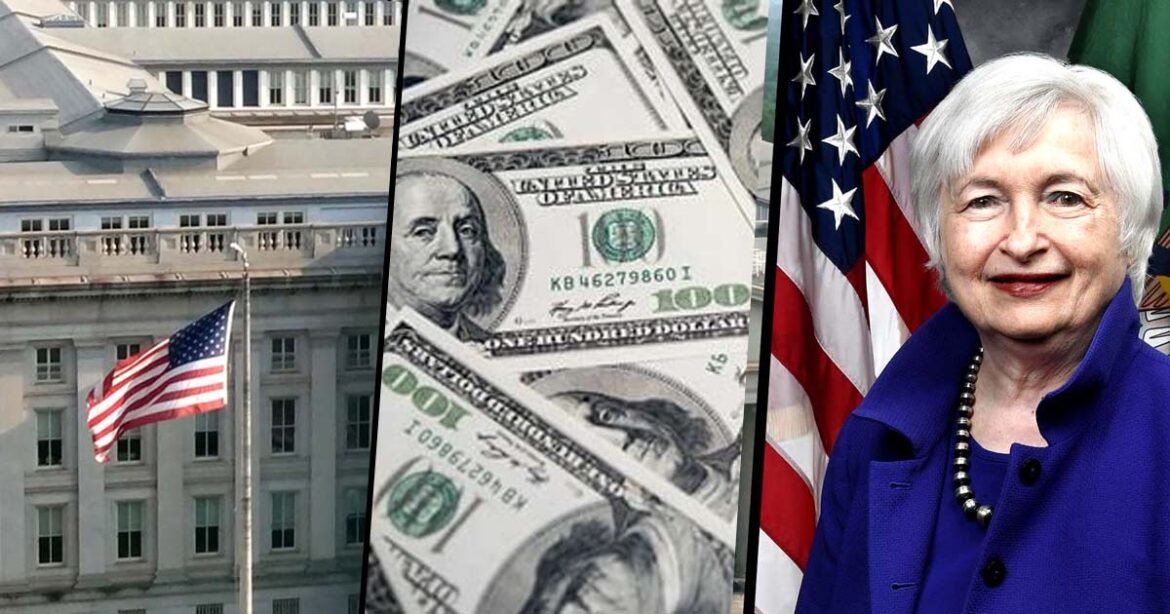US Treasury Secretary Janet Yellen has acknowledged that the fear of being affected by US sanctions has prompted countries to search for alternatives to the US dollar for settlements.
U.S. sanctions have had a significant influence on the global economy, and as a result, more countries are looking for alternatives to the dollar in international settlements. US sanctions are prompting many countries to look for alternatives to the dollar for transactions and elevating non-dollar holdings within their reserve assets, Treasury Secretary Janet Yellen admitted during her annual appearance on Tuesday before the House Financial Services Committee to discuss the state of the international financial system.
You can also read: PM Hasina’s vision: uniting nations for social justice and sustainable development
When asked about the possibility of a “de-dollarization,” Yellen admitted that the dollar’s role in international trade is changing.
“It’s not surprising that countries that are fearing they can be affected by our sanctions are looking for alternatives to the dollar. It’s something that we simply have to expect,” she stated.
The de-dollarization trend highlights the diminishing influence of the dollar in the global economy and its importance to anticipate future situations with falling dollar dominance.
The rise of de-dollarization
Several nations, including China, Russia, Iran, and Venezuela, have actively pursued de-dollarization strategies in recent years. These nations seek to reduce their reliance on the US dollar and prevent the United States from weaponizing the dollar’s global dominance. The United States’ sanctions against Iran and Russia have further accelerated this trend.
China and Russia have already initiated bilateral trade in their respective national currencies, the yuan and the ruble. Notably, Russia has converted to national currencies for settlements with foreign partners in response to Ukraine-related sanctions that limited its ability to conduct transactions via the SWIFT messaging system.
China, which is involved in trade disputes with the United States, has also increased the proportion of yuan used in trade settlements. In addition, countries such as Brazil and the UAE have eliminated the dollar from their bilateral trade agreements. ASEAN nations in Southeast Asia are promoting native payment systems to lessen their reliance on the U.S. dollar. Kenya is even purchasing crude from the Persian Gulf with its own currency.
Many nations worry that they will be targeted by US sanctions, and many are also experiencing a shortage of foreign reserves and opting for alternative currencies for international payments.
Challenges and implications
The U.S. dollar has long been the predominant global reserve currency and a secure haven for investors in times of economic uncertainty. Its extensive use in international trade settlements has given the United States significant sway over the international financial system.
The influence of U.S. monetary policy on foreign nations is one of the greatest challenges associated with the dollar’s dominance. When the Federal Reserve raises interest rates, the dollar strengthens, which can result in currency depreciation and economic difficulties for developing countries. The reliance on the dollar also makes countries susceptible to abrupt fluctuations in exchange rates.
In addition, the dominance of the US dollar enables the United States to exercise control and impose sanctions that restrict the economic activities of targeted nations.
The trend toward de-dollarization presents both obstacles and opportunities. On the one hand, it may undermine the hegemony of the US dollar, diminishing the US’s ability to impose economic sanctions and possibly eroding its global influence. If the US dollar gradually loses its global dominance, it could result in reduced access to capital, higher borrowing costs, and lower stock market values for the US. The loss of reserve currency status would require significant adjustments and belt-tightening within the country.
On the other hand, it could contribute to a multipolar currency system in which countries have greater control over their financial transactions and less exposure to US monetary policy.
US Treasury confident in dollar’s resilience despite growing diversification trend in question?
Congressman Vicente Gonzalez had asked Treasury Secretary Janet Yellen about the possibility of reducing the use of sanctions in US foreign policy. He pointed out that even countries like France, which have traditionally been allies, are conducting transactions in currencies other than the US dollar.
Yellen replied that, in her opinion, the majority of nations have few viable alternatives to the dollar. She acknowledged the impact of US sanctions and the subsequent quest for alternative currencies. She emphasized the unique features of the dollar, such as its deep and liquid financial markets, robust rule of law, and absence of capital controls, which no other country can replicate.
While acknowledging the expanding trend of diversification away from the dollar among global reserve assets, Yellen expressed confidence that the dollar will remain the dominant currency.
“We should expect over time a gradually increased share of other assets in reserve holdings of countries – a natural desire to diversify… But the dollar plays the role it does in the world financial system for very good reasons that no other country is able to replicate… It will not be easy for any country to devise a way to get around the dollar,” Yellen stated. She noted that among the dollar’s major strengths are “deep liquid opens financial markets, strong rule of law and an absence of capital controls,” which, according to Yellen, “no country is able to replicate.”
In conclusion, the US Treasury’s acknowledgment that sanctions pose a threat to the dollar’s dominance reflects a shift in global dynamics as nations seek alternatives to reduce their reliance on the US-led financial system. The growing diversification of reserve assets and increased use of national currencies indicate a gradual transition away from the dollar, posing challenges and opportunities for a more multipolar currency system.


